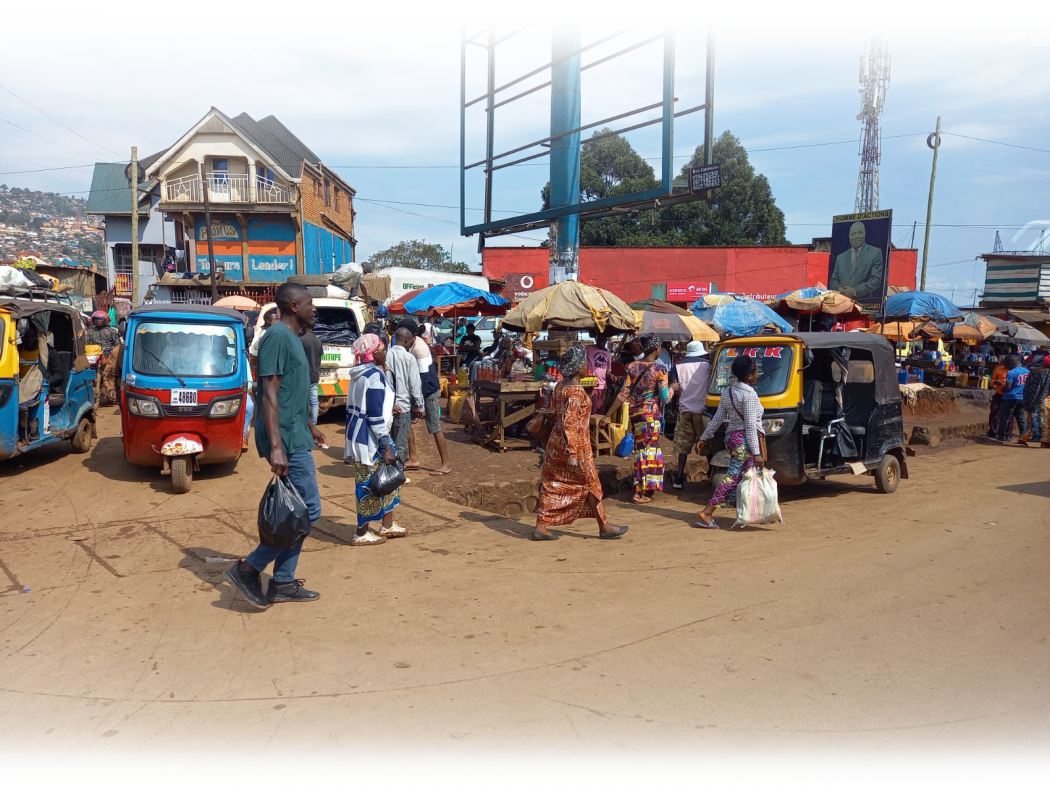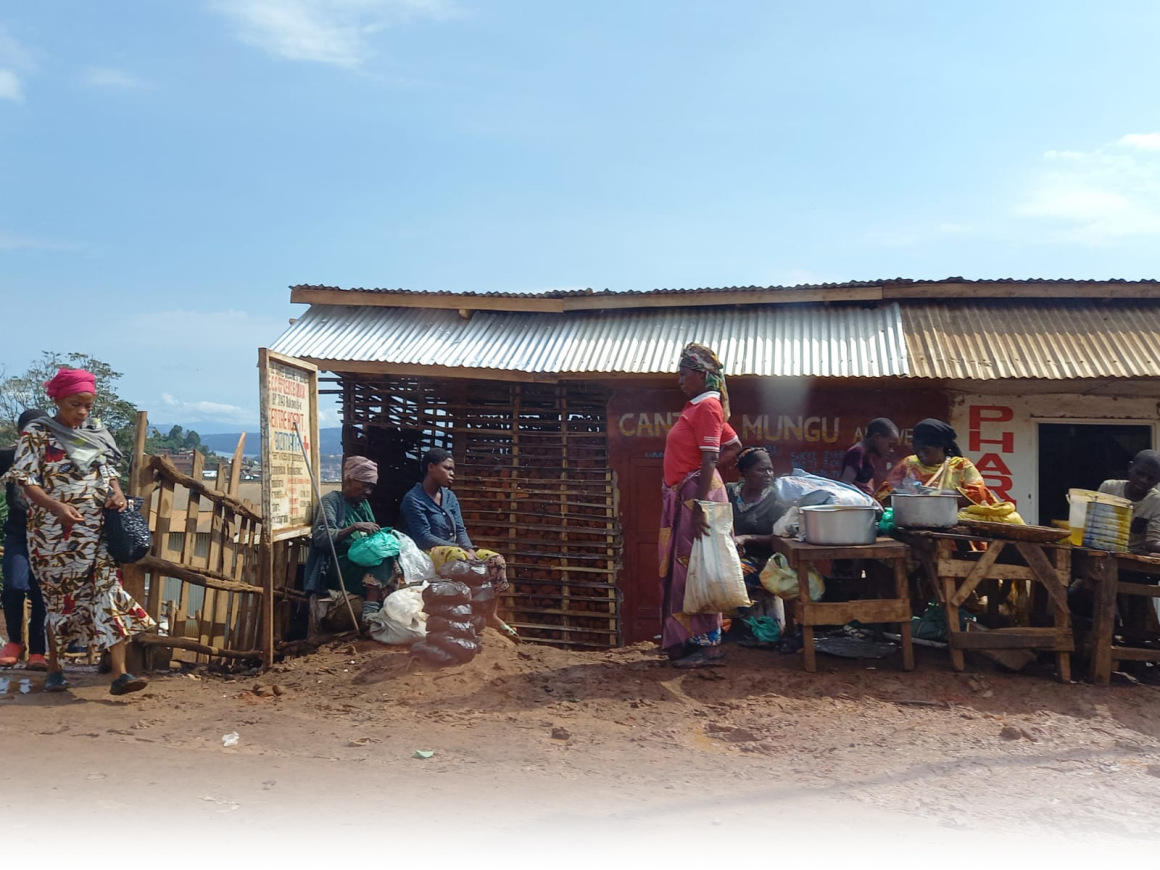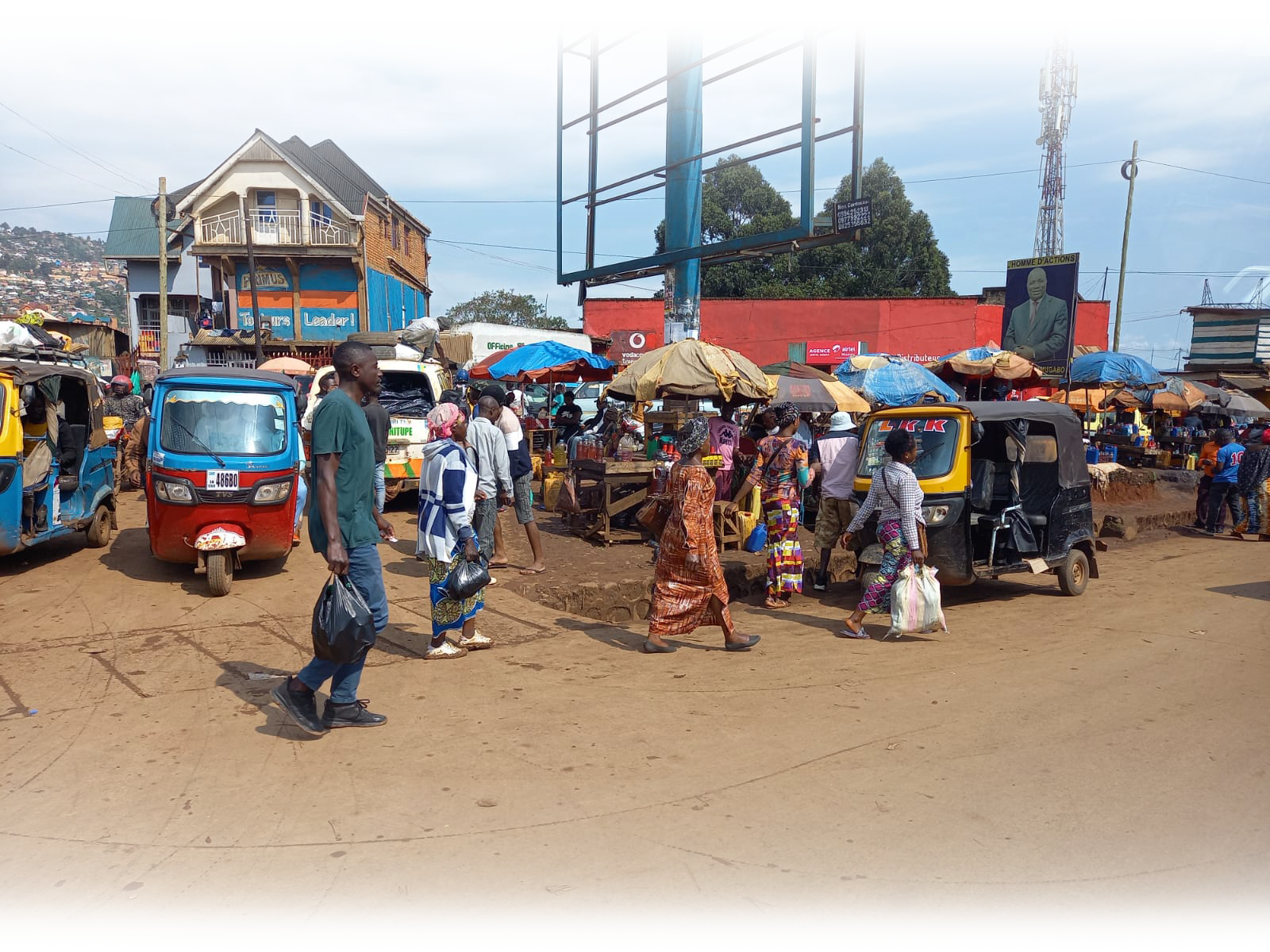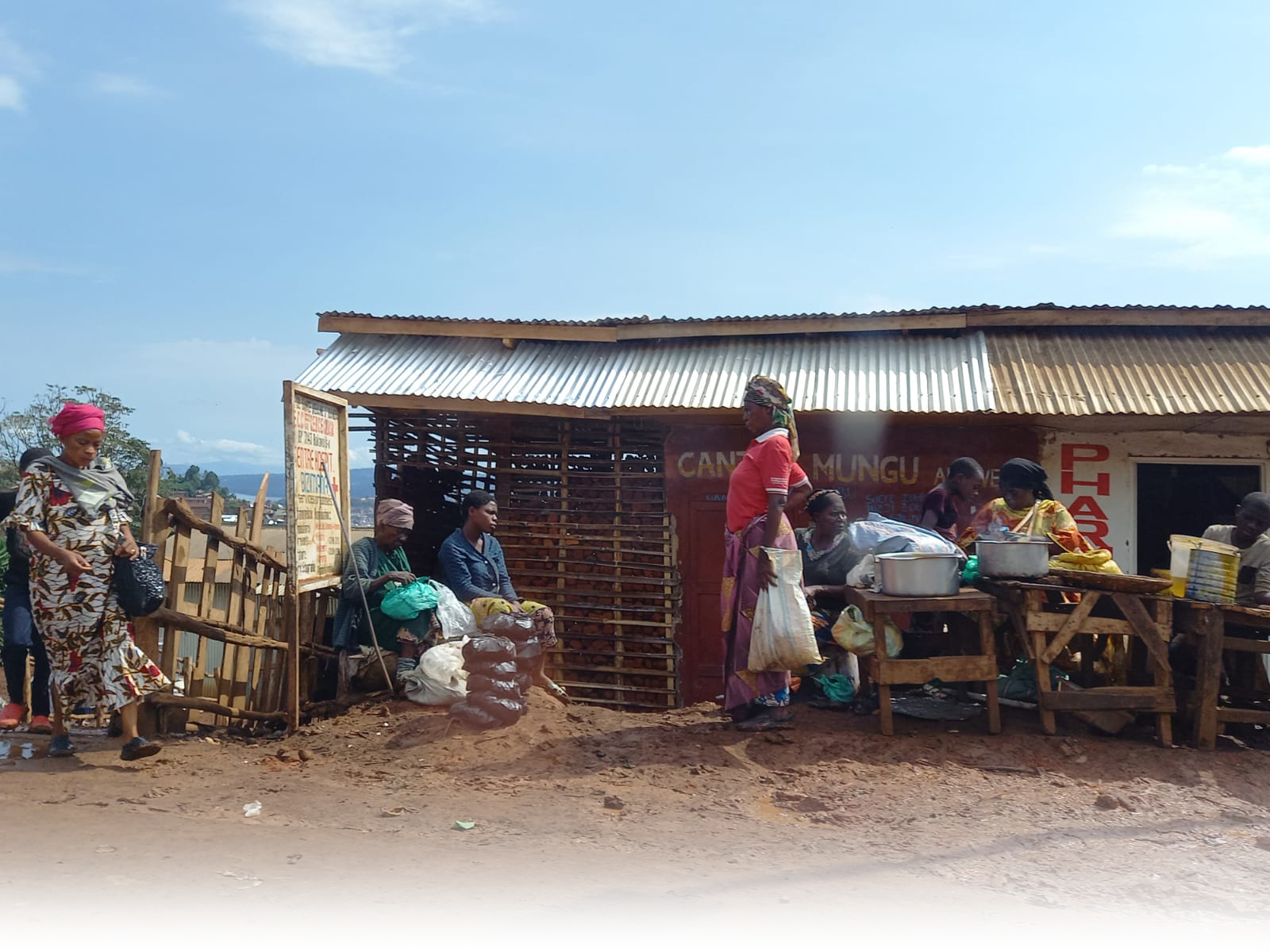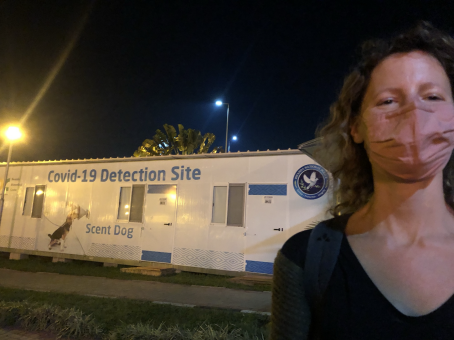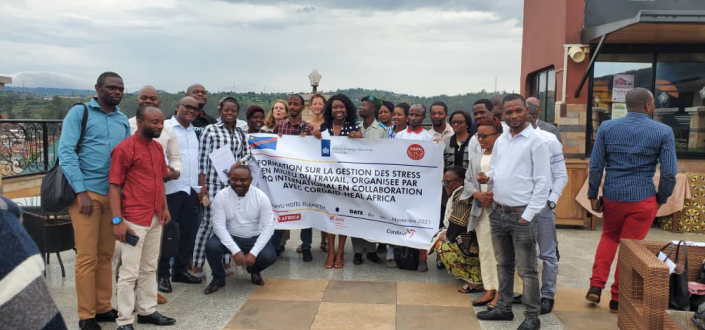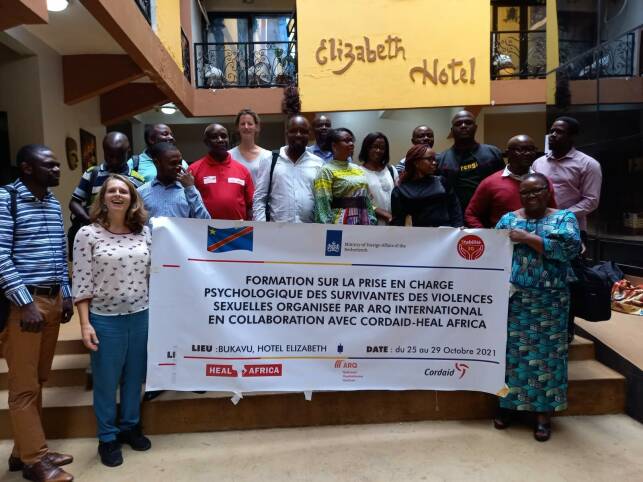The trainings are part of a project in partnership with Cordaid, Heal Africa, and ARQ International. Together we want to contribute to stability in North and South Kivu through the prevention of, and responding to, sexual violence.
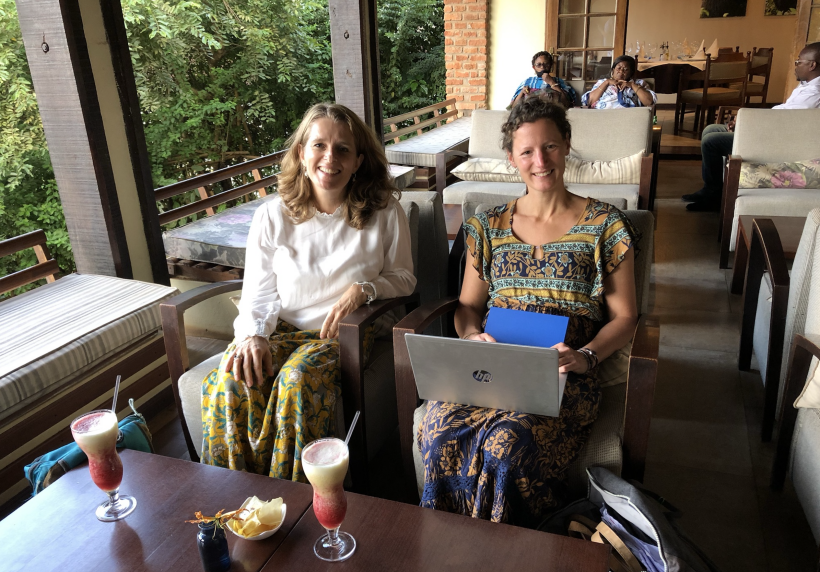
The newly trained trainers from Cordaid and Heal Africa put their knowledge directly into practice and have already trained several groups in the provinces. ARQ clinical psychologists Linda & Jitske look back on a successful collaboration. They will shortly return to DR Congo to provide follow-up training.
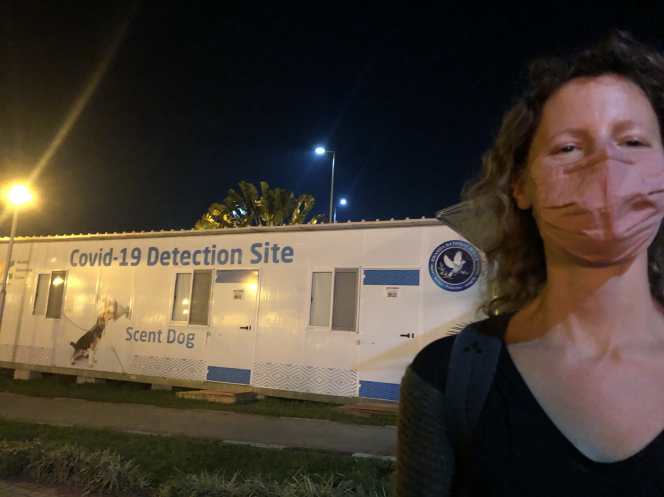
Of course, COVID-19
was still a concern. On the journey to and from Bukavu, the required PCR tests were administered. Fortunately, no one was infected with COVID-19 and the trip went fairly smoothly.
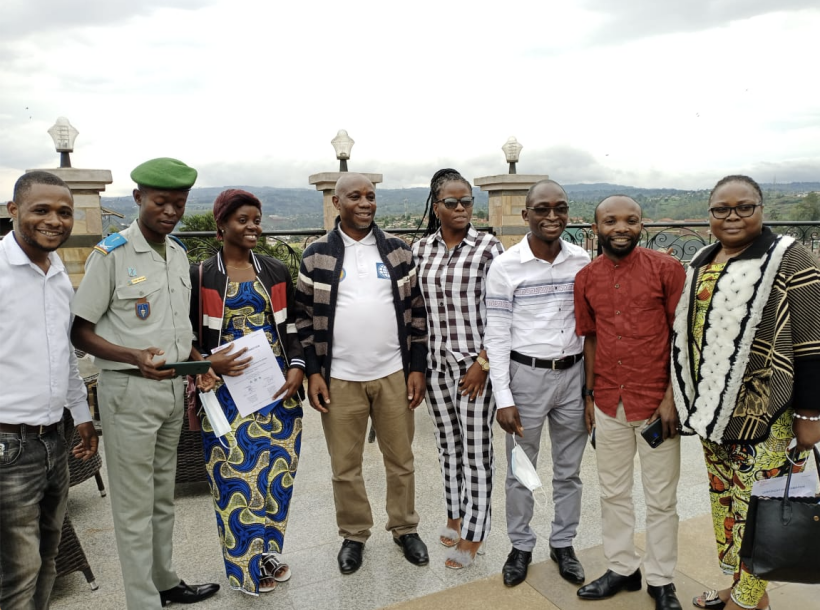
On the last two days,
Heal Africa's colleagues from the city of Goma visited to participate in a training given by the newly trained trainers. This was a great conclusion to the intensive collaboration.
In turn, our Congolese colleagues also taught us about giving training. For example, they always appoint a chef brises-glace or ‘chief icebreaker’. As soon as the concentration in the group drops or there is too much sitting still, the ‘chief icebreaker’ comes up with an exercise to get everyone moving and laughing again.
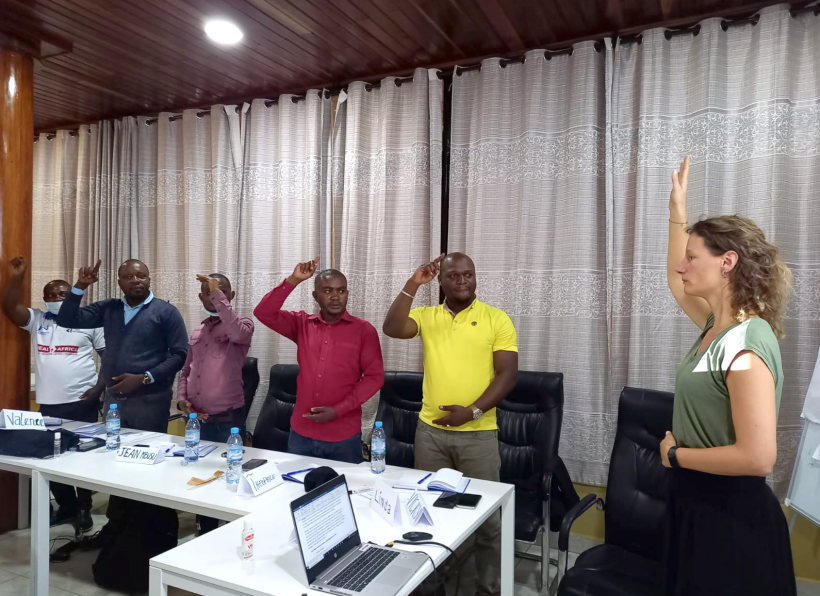
Participants
were given exercises
to determine their own stress level and learned about the window of tolerance. Traumatized people often react anxiously, warily, and irritably (hyperarousal), or become uneasy and dissociate (hypoarousal).
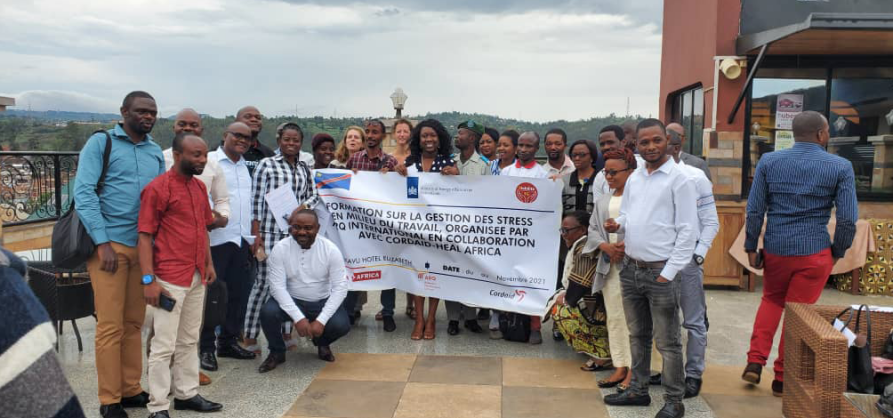
1-5 November
In the second week,
participants received stress management training. To prevent burnout symptoms and secondary traumatization, it is important to keep a close eye on your own mental health as well as that of
your colleagues.
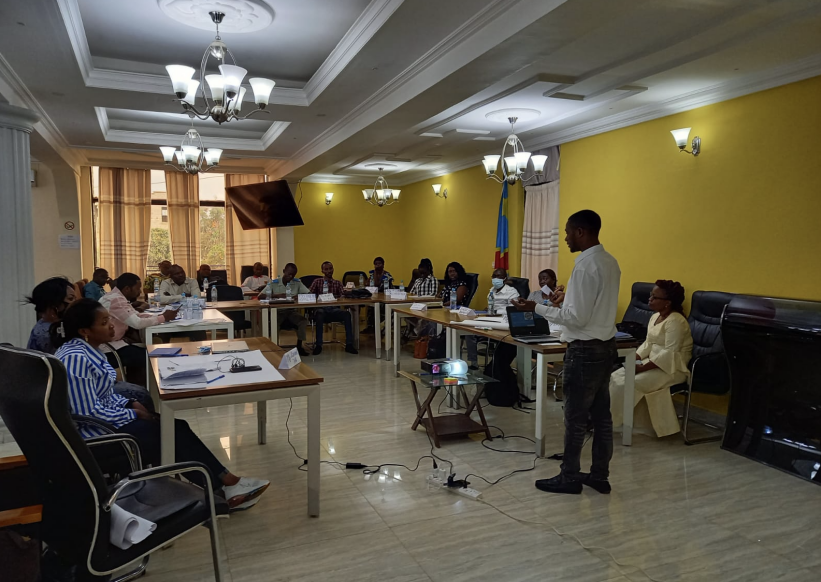
By Thursday and Friday, calm had returned and training could once again take place on site. On these last two days, the participants practised giving the training themselves.
Riots broke out in the city
during the night of Tuesday to Wednesday. Shots were fired at various locations, and everyone was ordered to stay indoors. Online and by telephone, Linda & Jitske continued the training that day. Fortunately, all the participants were safe.
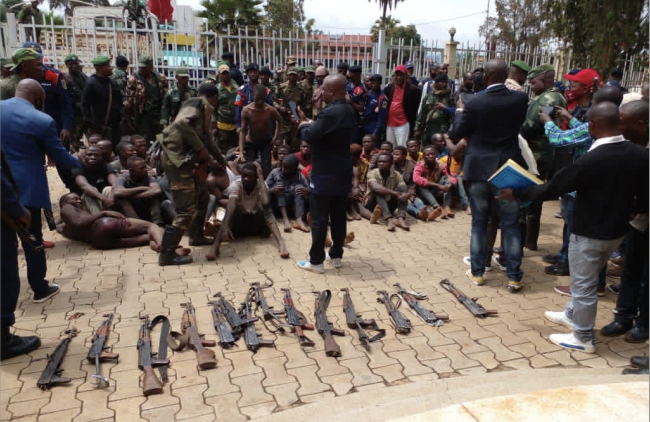
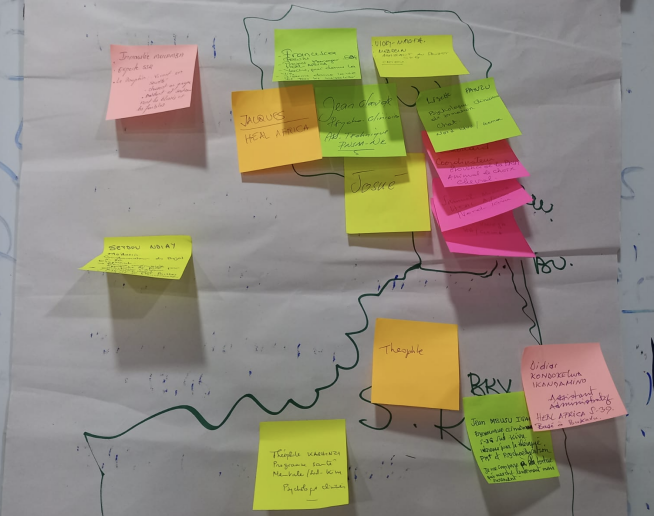
(DRC)
Training in the
Democratic
Republic of Congo
Participants are from the
North and South Kivu region and have a professional background in psychology or medicine. After this training, they train their colleagues so that the knowledge is shared and more of these female victims receive the psychological help
they need.
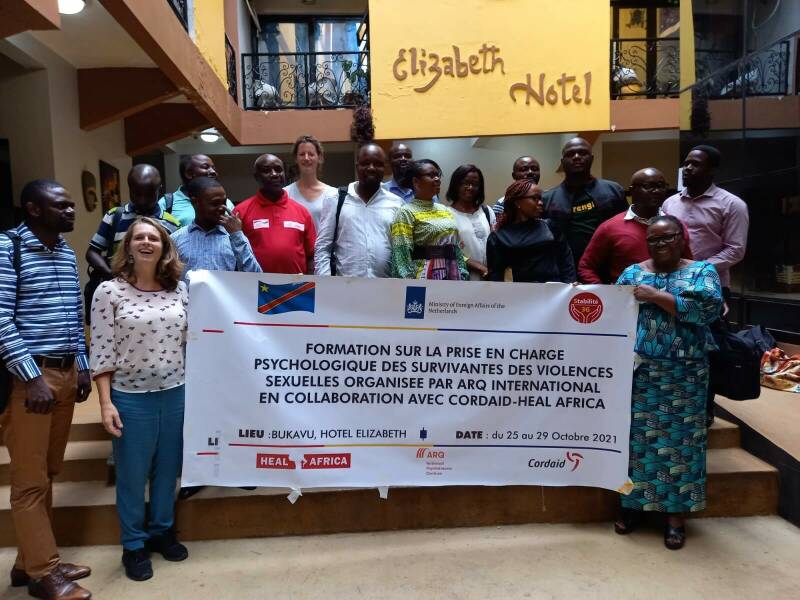
25-29 October
In the first week, psychologists from Cordaid and Heal Africa received training in psychological care for those affected by sexual violence. What are the symptoms of psychotrauma and how do you discuss them with a traumatized client?
At the end of October 2021, ARQ International travelled to Bukavu, a city in the east of the Democratic Republic of Congo, for the first time since the outbreak of COVID-19 and the ensuing global pandemic. ARQ clinical psychologists Linda Verhaak and Jitske Rullmann gave two training sessions to the psychologists and aid workers of Cordaid and Heal Africa. In the first week, they addressed psychological care for those affected by sexual violence. The second week focused on how the aid workers themselves can maintain good mental health.

25-29 October
The trainings are part of a project in partnership with Cordaid, Heal Africa, and ARQ International. Together we want to contribute to stability in North and South Kivu through the prevention of, and responding to, sexual violence.
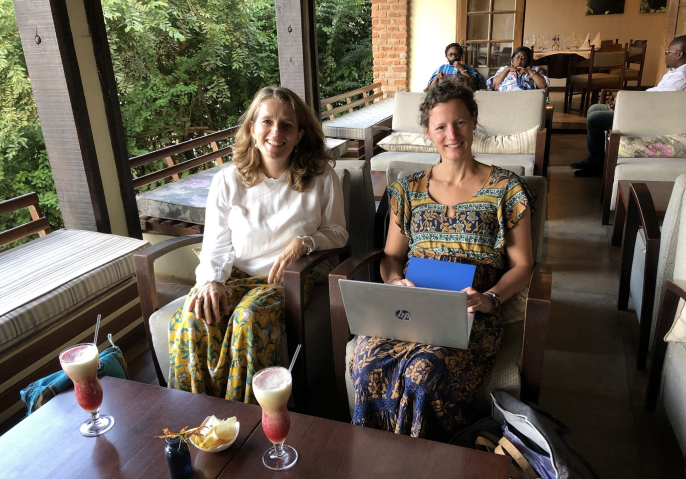
The newly trained trainers from Cordaid and Heal Africa put their knowledge directly into practice and have already trained several groups in the provinces. ARQ clinical psychologists Linda & Jitske look back on a successful collaboration. They will shortly return to DR Congo to provide follow-up training.
Of course, COVID-19
was still a concern. On the journey to and from Bukavu, the required PCR tests were administered. Fortunately, no one was infected with COVID-19 and the trip went fairly smoothly.
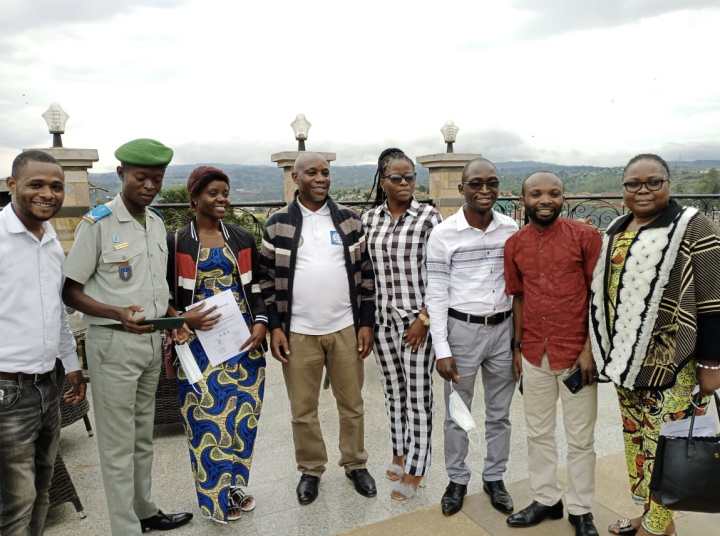
On the last two days,
Heal Africa's colleagues from the city of Goma visited to participate in a training given by the newly trained trainers. This was a great conclusion to the intensive collaboration.
In turn, our Congolese colleagues also taught us about giving training. For example, they always appoint a chef brises-glace or ‘chief icebreaker’. As soon as the concentration in the group drops or there is too much sitting still, the ‘chief icebreaker’ comes up with an exercise to get everyone moving and laughing again.
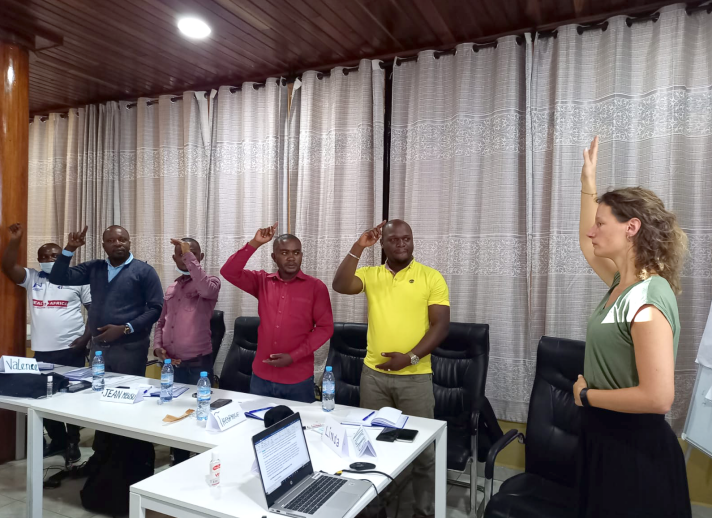
Participants
were given exercises
to determine their own stress level and learned about the window of tolerance. Traumatized people often react anxiously, warily, and irritably (hyperarousal), or become uneasy and dissociate (hypoarousal).
1-5 November
In the second week,
participants received stress management training. To prevent burnout symptoms and secondary traumatization, it is important to keep a close eye on your own mental health as well as that of
your colleagues.
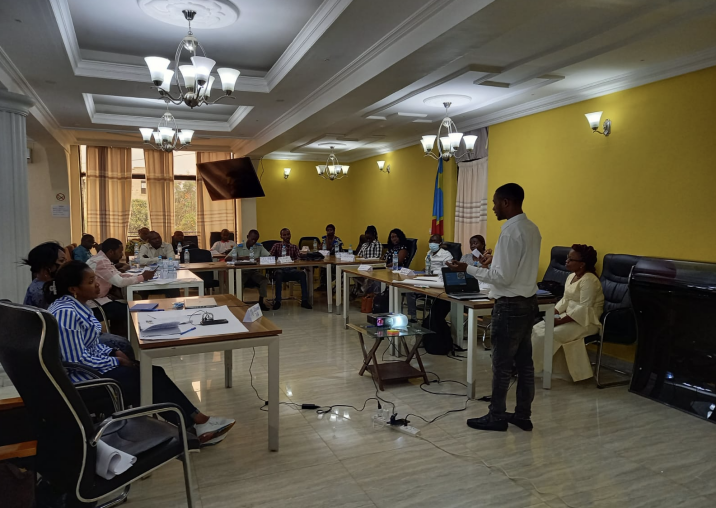
By Thursday and Friday, calm had returned and training could once again take place on site. On these last two days, the participants practised giving the training themselves.

Riots broke out in the city
during the night of Tuesday to Wednesday. Shots were fired at various locations, and everyone was ordered to stay indoors. Online and by telephone, Linda & Jitske continued the training that day. Fortunately, all the participants were safe.
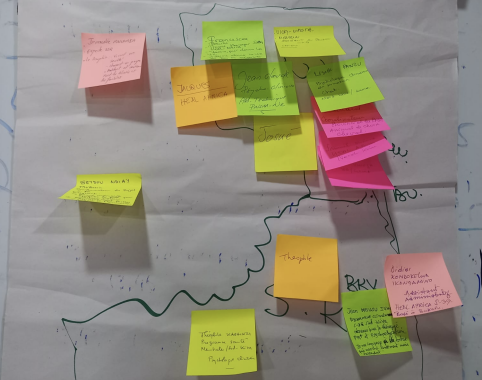
Participants are from the North and South Kivu region and have a professional background in psychology or medicine. After this training, they train their colleagues so that the knowledge is shared and more of these female victims receive the psychological help they need.
(DRC)
Training in the
Democratic
Republic of
Congo
At the end of October 2021, ARQ International travelled to Bukavu, a city in the east of the Democratic Republic of Congo, for the first time since the outbreak of COVID-19 and the ensuing global pandemic. ARQ clinical psychologists Linda Verhaak and Jitske Rullmann gave two training sessions to the psychologists and aid workers of Cordaid and Heal Africa. In the first week, they addressed psychological care for those affected by sexual violence. The second week focused on how the aid workers themselves can maintain good mental health.
